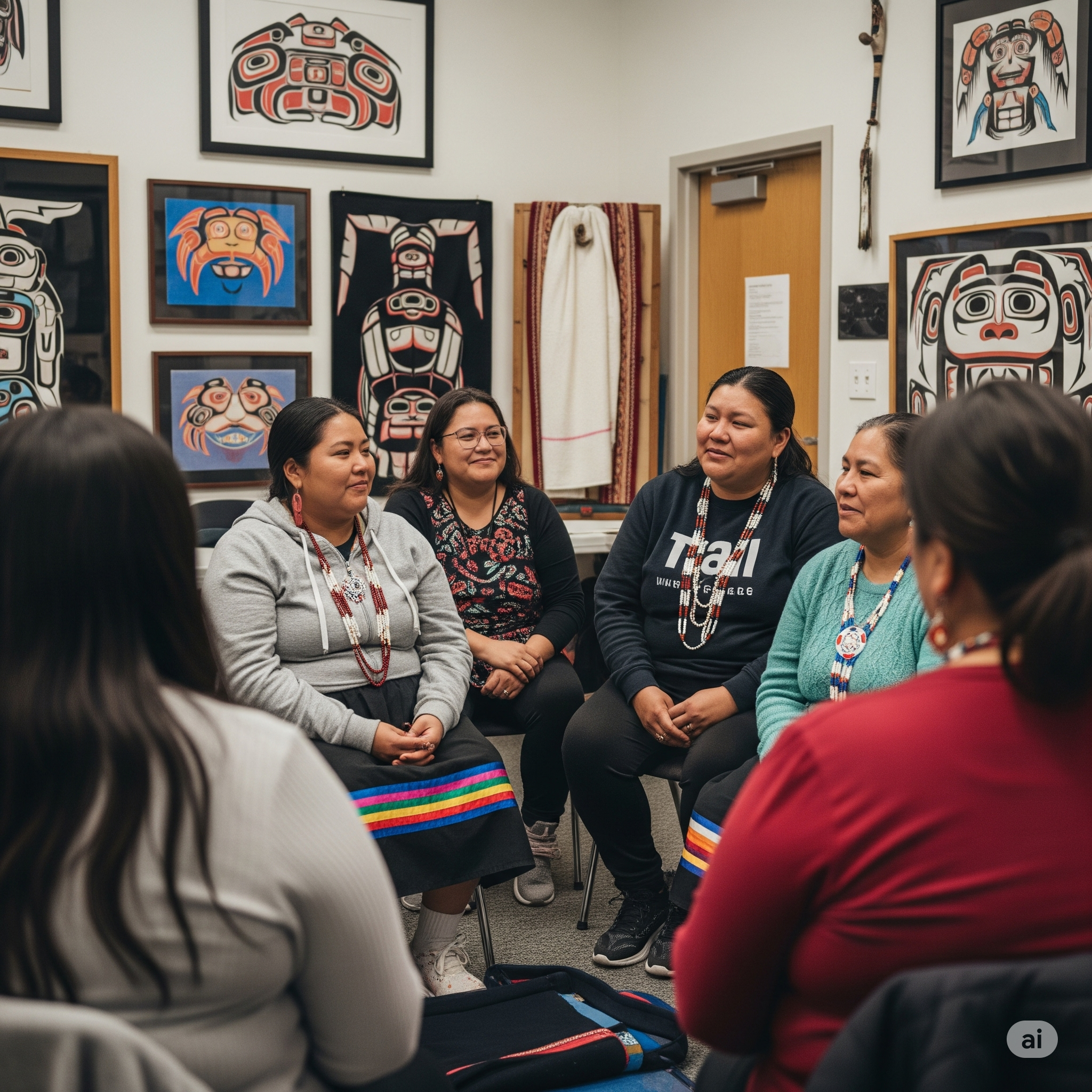Indigenous-Specific Support Services for Women Experiencing Violence in Vancouver
Indigenous women in Vancouver facing violence have access to culturally relevant support. This guide highlights key Indigenous-specific services.

# Indigenous-Specific Support Services for Women Experiencing Violence in Vancouver
Indigenous women in Vancouver—including First Nations, Inuit, and Métis individuals—face a disproportionately high risk of violence. Recognizing the historical and systemic factors that contribute to this crisis, dedicated Indigenous-specific organizations provide culturally safe, trauma-informed, and holistic support. These services honor the importance of community, culture, and traditional healing in the journey to safety and wellness.
## Why Indigenous-Specific Support Matters
• Mainstream services may not address cultural protocols or the intergenerational impacts of colonization
• Indigenous-led organizations center healing practices rooted in community values and Indigenous worldviews
• Culturally safe spaces foster trust and empower women to reclaim agency and identity
## Key Indigenous-Led Resources in Vancouver
### Vancouver Aboriginal Friendship Centre Society
Offers a range of programs for urban Indigenous people, including outreach, cultural workshops, and safety planning for those experiencing violence. Staff can provide referrals to shelters, counselling, and legal advocacy.
How to connectVisit vafcs.ca or attend the centre at 1607 East Hastings Street to learn about current programs.
### Aboriginal Family Services Society
Provides family support that includes counselling, community wellness circles, and cultural reconnection activities. Services address both individual healing and family preservation.
How to connectContact AFSS at or call 604-879-9101 to inquire about specialized support.
### WISH Drop-In Centre Society
Serves women involved in the street-based sex trade—many of whom are Indigenous—by offering harm-reduction services, crisis counselling, and referrals to culturally specific resources and safe housing options.
How to connectDrop in at 1118 Richards Street or call 604-683-8566 for immediate support and outreach details.
### Indigenous Victim Services (VPD and RCMP)
Some units of Victim Services BC employ Indigenous outreach workers trained to provide culturally sensitive crisis intervention, safety planning, and referrals to Indigenous-led healing programs.
How to connectCall VictimLink BC at 1-800-563-0808 and request an Indigenous Outreach Worker.
### Healing and Wellness Centres
Indigenous-led health centres offer counselling, traditional healing ceremonies, and supports for trauma recovery. These holistic centres often integrate Elders, cultural teachings, and land-based activities.
Examples and access• Coast Salish Health Centre for Urban Indigenous Peoples• Vancouver Native Health SocietyVisit their websites or community health directories to find program schedules.
### Legal Aid BC – Indigenous Services
Provides legal representation and advice tailored to Indigenous clients, including help with Protection Orders, family law matters, and navigating immigration issues when domestic violence intersects with status concerns.
How to connectApply online at legalaid.bc.ca or ask an Indigenous support worker for assistance with the application process.
## Principles of Indigenous-Specific Care
• Cultural safety and humility, ensuring services respect traditions and protocols• Trauma-informed approaches that address both historical and personal violence• Holistic focus on physical, emotional, mental, and spiritual well-being• Community connection through Elders, knowledge keepers, and peer support networks• Empowerment and self-determination, enabling women to guide their healing journey
## How to Begin Your Journey to Safety
1. Identify the service that feels most aligned with your cultural background and needs
2. Reach out by phone or in person—staff will respect confidentiality and explain available supports
3. Ask about interpreter services or language-specific programs if needed
4. Connect with an Elder or mentor through the organization for cultural guidance
5. Develop a safety plan that incorporates traditional healing alongside practical measures
